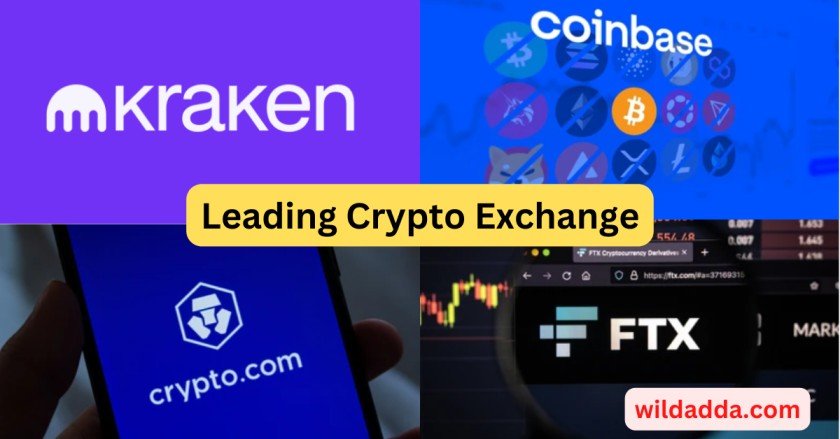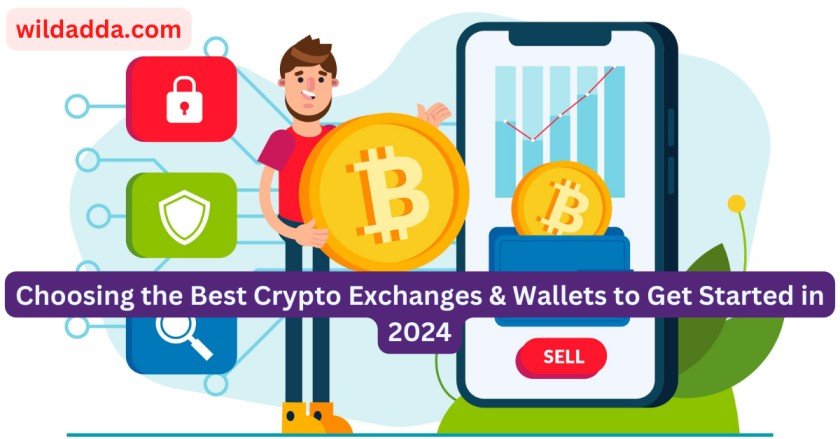Table of Contents
Introduction
As the crypto market cap exceeds $2 trillion in 2023, properly securing your investments by choosing reputable exchanges and wallets remains vital. Hundreds of platforms now exist globally allowing buying, selling, and managing an expanding array of digital assets.
Navigating newcomers’ options paralysis to pick ideal solutions matching needs and security best practices enables entering crypto markets confidently while circumventing pitfalls. Whether investing casually or trading actively, the following reliable crypto exchanges and wallets provide ideal starting points.
Key Considerations for Selecting Crypto Exchanges and Wallets
When evaluating the swelling options for buying crypto and managing holdings, several core factors determine ideal platforms:
Security Protocols – 95%+ cold storage, 2FA, and insurance around hacks brings peace of mind.
Supported Currencies – From Bitcoin and Ethereum to altcoin favorites like Solana or Cardano, asset breadth is key.
Fees and Limits – Entry-level friendly deposits/withdrawals and competitive trading fees prevent barrier.
Regulatory Compliance – Government registration for KYC and platform practices instill institutional grade trust.
Balancing across these criteria tailored to individual investor preferences assists finding your best crypto exchange and wallet combination.
Leading Recommended Crypto Exchange Options

Based on security, fees, altcoin variety, and rising industry adoption among novice crypto buyers, below exchanges provide reassuring starting points:
Kraken – One of the longest running and most respected exchanges offers excellent liquidity with low fees while integrating solid security practices. If seeking a more advanced trading interface, Kraken supplies needed tools beyond simple buying while supporting 70+ crypto assets.
Crypto.com – Fast growing Crypto.com managed 65 million global users by 2022 thanks to best-in-class security certifications, free debit card rewards incentivizing small buys, and educational resources assisting beginners. They support 250+ currencies.
FTX Exchange – Backed by well-known investors, FTX supplies leverage and derivatives trading for advanced tactics beyond spot buying while also maintaining security assurances and reasonable fee structures.
Coinbase – Although fees run slightly higher, Coinbase’s public company status and insured custodial services provide the most straightforward mainstream fiat currency onboarding.
Opening accounts across 1-2 exchanges allows comparing tools and benefits like staking or card perks along your journey.
Best Crypto Wallet Choices to Secure Your Assets
Wallets securely hold crypto assets offline unlike exchanges’ internet-tied hot wallets. Owning wallets removes third party risks. Options include:
Hardware Wallets – Physical external cold storage devices like Trezor or Ledger offer best-practice security through encrypted private keys. Despite ~$100 device costs, hardware wallets protect substantial, long term holdings.
Software Wallets – Mobile and desktop options like Exodus, Metamask, Trust Wallet deliver strong encryption solutions for everyday storage, transactions, and dApp compatibility. Carefully record backup phrases offline.

Paper Wallets – For ultra basic cold storage, paper wallets contain QR codes allowing transferring assets into their generated address for offline holds. Lock away carefully.
Employing either hardware or software main wallet in tandem with exchanges streamlines secure asset access, trading, and long term holdings.
Tips for Safely Managing Your Crypto Exchanges & Wallets
After thoroughly evaluating ideal platforms among highly secure exchanges like Kraken or Crypto.com along with robust wallet solutions, implementing good management habits is critical:
- Enable 2-factor authentication across accounts
- Bookmark official URLS to avoid phishing attempts
- Maintain strong unique passwords in a password manager
- Carefully transcribe wallet backup phrases offline
- Test small transfers before making large transactions
- Continuously educate beyond evolving crypto scams
Staying vigilant around security while leveraging leading exchange and wallet protections makes entering crypto markets via respected regulated platforms worthwhile for prudent investors.
FAQS
FAQ #1: What should I look for in a crypto exchange to know if it is safe and trustworthy?
When evaluating crypto exchanges, look for platforms that prioritize proper security protocols like 100% cold storage with offline systems and two-factor authentication safeguards. Additional assurances include insurance policies covering hacking incidents, legal compliance with local regulators, and strong reputations upheld over multiple years. Exchanges should also undergo third-party security audits and penetration tests with public findings.
FAQ #2: Should I keep my crypto on an exchange or in a personal wallet?
Unlike hot wallets used by crypto exchanges which carry hacking risks, hardware and software wallets with private key controls offer significantly more secure long term storage options once assets are purchased. But this comes with sole responsibility around losing devices or forgetting credentials. Using exchanges for active trading while keeping majority holdings in personal wallet provides ideal balance.
FAQ #3: What popular crypto exchanges allow new account signup with just an email address?
Mainstream exchanges like Coinbase, Crypto.com, and Kraken offer direct account creation using just an email address and password initially. However, to unlock full trading and withdrawal functionality, users must complete photo ID verification later. Uploading documents early like a driver’s license or passport enables faster approvals meeting know-your-customer (KYC) regulations in most regions.
FAQ #4: Which crypto wallet is compatible with storing the widest range of digital assets?
If seeking a single crypto wallet able to securely hold Bitcoin, Ethereum plus over 500 additional altcoins, the Exodus software wallet available on desktop and mobile provides that needed coin versatility. Exodus integrates exchange partners to enable direct trading and swapping inside one intuitive interface without needing external accounts linking.
FAQ #5: What security steps should I take after purchasing crypto to prevent losing access?
After buying crypto on any exchange, first initiate transfers of coins into your personal wallet right away to reduce third-party risks from holding funds externally long term. Be sure to carefully record the wallet’s unique recovery phrase offline in a secure location. Next enable all available security settings – including two-factor requirements for accessing the wallet or making new transactions. Treat wallet credentials comparable to extremely sensitive banking passwords.
